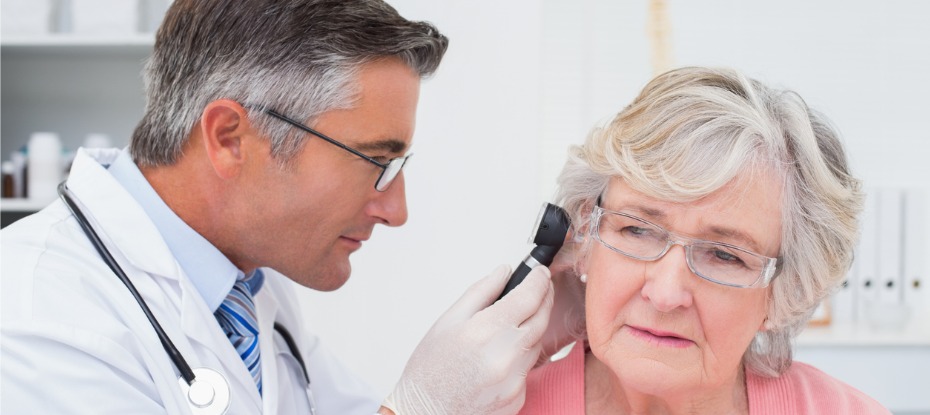
We all want to live long and healthy lives. Some simple health checks can help you stay healthy and enjoy the relief of knowing you are doing what you can for your health. Many of us are often too busy in our day-to-day lives and struggle to find the time to look after ourselves. Let's not use that as an excuse and find out when to go for a health check.
Start with a GP
Every woman needs a GP they can talk to openly and who listens to their concerns. If you don’t have a regular GP (or clinic) you can trust, ask for recommendations from people close to you. Make an appointment and if the GP was not the right fit, don't give up and try another one.
Read more about tips and guidance on what to consider when looking for a good GP.
Health Checks for Women
There is a wide range of health tests and checks to do at different stages of life. These were designed for early detection and treatment of possible issues that may worsen with time.
Cancer Screening Checks
Cancer is a major cause for concern. One in two Australian women and men will receive a cancer diagnosis by the age of 85.
Cervical Cancer Screening
Cervical cancer is one of the most preventable cancers. Women are recommended to have cervical screening tests from the age of 25. This test detects the presence of HPV - a common sexually transmitted infection that leads to cell changes in the lining of the cervix. The HPV vaccine protects you against some but not all types, so even vaccinated women need regular screening tests.
Breast Screening
From the age of 50 to 74, women are encouraged to have a free mammogram every 2 years. However, if you have a family history of breast cancer, your GP may recommend having mammograms earlier, around the age of 40. A mammogram can detect up to 90% of breast cancers. Early detection of breast cancer gives women the best chance of survival. Remember to do your breast checks and report any changes to your GP for further investigation between mammograms or if you’re too young for the test.
Bowel Screen
From the age of 50, your risk of bowel cancer increases. Bowel cancer is the 3rd most common cancer in Australia and the 2nd leading cause of cancer-related death. When detected early, bowel cancer can be treated successfully in 9 out of 10 cases. For these reasons, the Australian Government provides a bowel screening kit every 2 years when you reach the age of 50 and until you are 74. The free in-home screening kit is completed and returned in the mail. The test goes to a lab for analysis and the results get sent back within 2 weeks.
Skin Check
Living in Australia increases the risk of developing skin cancer compared to other parts of the world. Skin cancer can usually be successfully treated if found early, but if not, it can be deadly. Check your skin regularly, and if you notice any new spots or changes in size, colour or shape for any existing ones, see your GP.

Blood Pressure Checks
It is recommended to check your blood pressure every 3 to 5 years if you’re under 40 years old, don’t have any risk factors for high blood pressure, and your blood pressure is in the normal range (between 80 mm Hg and 120 mm Hg).
Your GP may recommend an annual check if your blood pressure is outside the normal range, if you have family history of high blood pressure, or had high blood pressure while pregnant.
If you want to check your blood pressure on a regular basis, you can purchase a blood pressure monitor from your local chemist. Read some reviews to ensure you buy a high-quality device, and if you have any concerns, talk to your GP.
Bone Density Scans
One of the major concerns for many women as they age is osteoporosis. The chronic disease makes bones less dense and fragile and are more likely to fracture or break. This occurs when bones lose calcium and other minerals faster than the body can replace them. You are at higher risk of osteoporosis after 50 years old, have a family history, have low calcium and vitamin D intake, engage in low levels of physical activity, have a thin body build, or suffer from other health conditions.
Ask your GP if they recommend having a bone density scan. If the scan's results show your bone density is less than normal or suggest you have osteoporosis, you can take action to protect your bones and improve their density.
Dental Examinations
Seeing your dentist every 6 to 12 months for a check-up and professional cleaning keeps your teeth looking good and is also essential for your general health. A build-up of plaque and bacteria in the mouth can increase your risk of coronary disease and stroke. Untreated gum disease can result in tooth loss which impacts how to eat and speak and can lead to loss of jaw bone.
Heart Health Checks
Starting at the age of 45, the Heart Foundation recommends having a heart health check every 2 years. The check-up can detect if you’re at a higher risk of a heart attack or stroke in the next 5 years. Your doctor will ask about your lifestyle and family history and test your blood pressure, blood, and urine. Your GP can advise you on how to make positive lifestyle changes to lower your risks.
Hearing and Sight Checks
Unfortunately, our sight and hearing tend to deteriorate with age. You may not realise that your hearing isn’t as good as it once was. Sometimes it takes a family member to notice that you can’t hear some noises or the TV is too loud. Book in from a hearing test every 3 to 5 years, and if you’re over 60 years old, an annual check is recommended.
Failing eyesight is more recognisable. When the ingredients list or newspaper is hard to read, even at arm’s length, you know your eyes aren’t what they used to be. A person with perfect vision in early adulthood will often notice that they start to lose their focusing ability for near vision due to the lens inside the eye becoming less flexible.
It’s best to have an eye test every 2 years for all ages and more frequently if you have diabetes or high blood pressure.

Type 2 Diabetes Questionnaire
Diabetes is one of those chronic diseases that you may not be aware you have or are at risk of developing in the future. From the age of 40, your risk of developing type 2 diabetes increases. It’s estimated that up to 500,000 Australians have undiagnosed type 2 diabetes. By completing a questionnaire called AUSDRISK every 3 years, your doctor can assess your risk of developing type 2 diabetes over the next 5 years.
Immunisations
Vaccinations help strengthen the immune system by helping recognise and fight certain germs when they are present in the body. Girls between 13 and 18 years are recommended to have the human papillomavirus vaccine to help prevent cervical cancer later in life. If you’re pregnant or planning to be, the whooping cough vaccine is also recommended at this stage and again at 50 and 65 years old.
COVID-19 and the annual flu vaccinations can provide protection against serious illness. After the age of 50, the pneumococcal vaccine is recommended, and over 60 the shingles vaccine is too.
Kidney Health Check
The only way to know if you have kidney disease is through testing. A kidney health check involves a blood, urine, and blood pressure test. If you have no risk factors, there’s no need to have a kidney health check unless your doctor advises you to. The risk factors include smoking, high blood pressure, diabetes, or a family history of kidney disease.
Talk to Your GP
It's essential to have a GP you can talk to and who you feel listens to your concerns. The more your GP knows about you and your health history, the more they will be able to help you. Taking charge of our health as a woman will vary depending on personal circumstances, and having a hospital & extras cover will allow you the freedom to choose what you need.